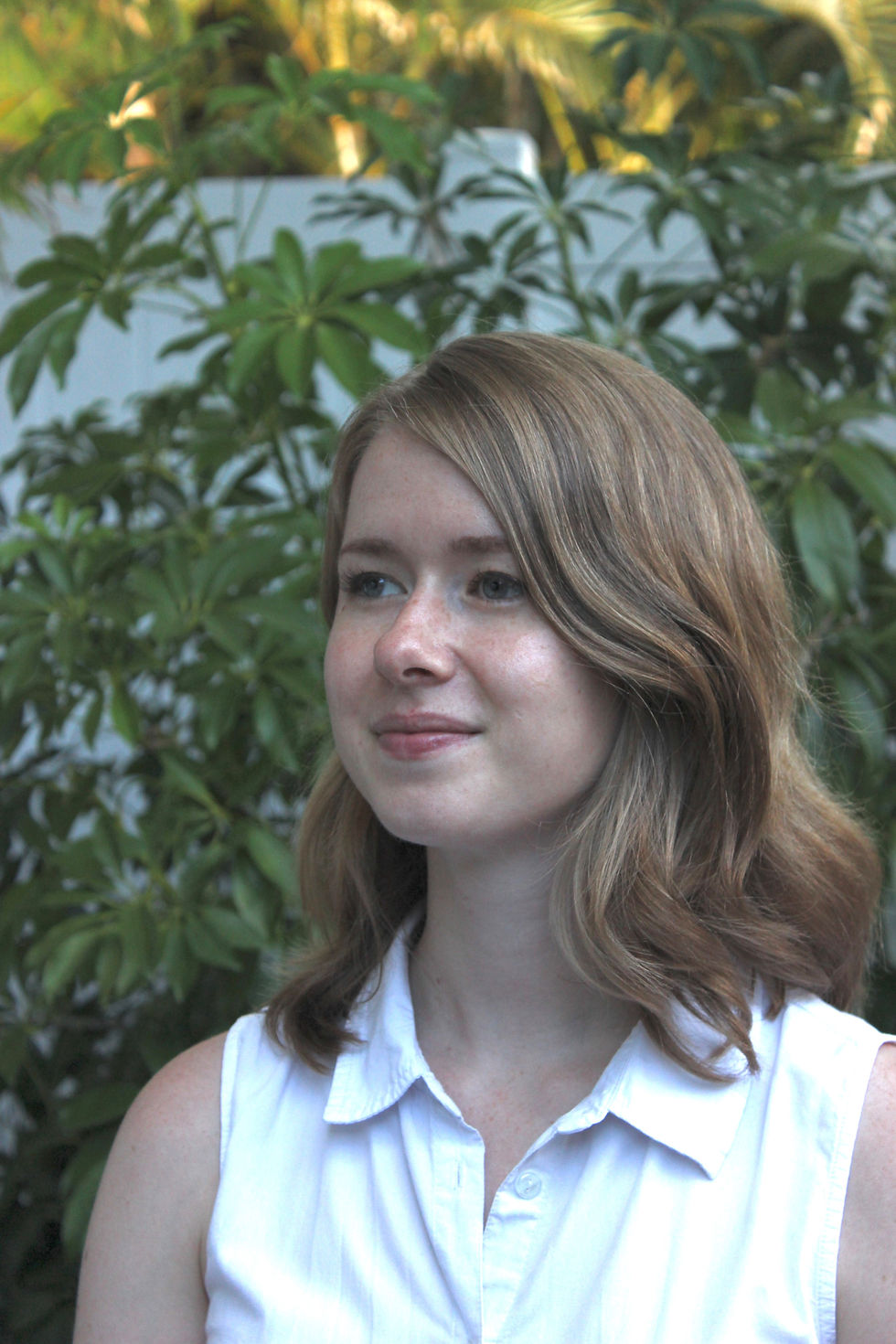Rennie Parker: Eco-anxiety on the Outer Banks (OGT Intergenerational Series - Essay #2)
- emilynfowler

- Apr 17, 2022
- 3 min read
Updated: Jun 28, 2022
At OneGreenThing, one of our goals is to stop talking AT younger generations and to encourage everyone to listen TO younger generations, from 20-something Millennials to Gen Z and Gen Alpha, the generations who will inherit the Earth. As part of our countdown to the release of our CEO & Founder Heather's debut book, One Green Thing: Discover Your Hidden Power to Help Save the Planet, we are releasing a series of essays by members of Gen Z. We are so grateful for their willingness to share their stories and lend their voices to the mission of "saving our sanity & the planet."

By Rennie Parker
When I think about it, I can’t remember the last time I visited home when there wasn’t a storm.
The first weekend in October it was a severe tropical storm, over Thanksgiving it was a three day onslaught of tireless winds and pouring rain, and during Winter Break it was the spontaneous Nor’easter that interrupted a stream of 70 degree, cloudless days. During all three, I put on my rain boots and wind breaker and waded around in the foot of salt water that covered the roads.
My home is the Outer Banks of North Carolina, in a small village on the Southern tip of Hatteras Island. Island is a strong word for what we are, though, more like a barrier sandbar.
To a visitor, my home seems like an enduring paradise, but those of us who’ve endured winter after winter know the true nature of the island, which operates as a moving, breathing, living being.
Something I’ve noticed as I’ve gotten older, though, is that my island seems to be sick.
Hurricane seasons have steadily worsened, rendering entire neighborhoods unlivable and uprooting acres of woods. My own house was flooded and destroyed in 2016 during Hurricane Matthew. The “normal” water level off the west side of the island has steadily increased every year. When I mentioned my observations to my mother, she responded with nostalgia “The beaches are much smaller than they used to be, that’s what happens when the water level rises and shifts the sand. I remember when there were miles of more land off the southern point.”
Every storm and every inch that the water has risen, suffocating the plants and land, has felt like the nail in the coffin of my home.
It’s no leap of intuition to reason that these changes are because of our ever warming climate. I realized that I’ve had a front row seat to climate change my entire life, my own and other coastal communities on the East coast feeling the effects on a magnified scale as we take hit after hit. I’ve gotten to watch the world change first hand and physically measure the difference between the Hatteras Island of my childhood and present.
Being able to assign a number to climate change has, as one would expect, given me a reason to worry. My eco-anxiety has skyrocketed in this past year alone as I relive the same weather disaster every break from school.
It’s a Groundhog Day situation, except there is no all-star cast or known resolution, and the stakes are a lot higher.
What all of these storms have in common though, are the small joys that our community finds in them. When the roads are flooded with seawater, kids splash around in little rain boots, people walk along the roads picking up debris from the wind, and families take advantage of their time off to embark on movie marathons. The trick, we’ve found, to managing the anxiety, is to look for the silver lining in each disaster and trust that people are working just as tirelessly to save the planet as we are fighting off the elements.
We are no longer shaken by the constant stream of weather systems, just motivated to continue serving the planet for the well being of others, and preservation for our own little slice of paradise.
Intern Rennie Parker is a recent graduate of Salem Academy in Winston-Salem, North Carolina.




Comments